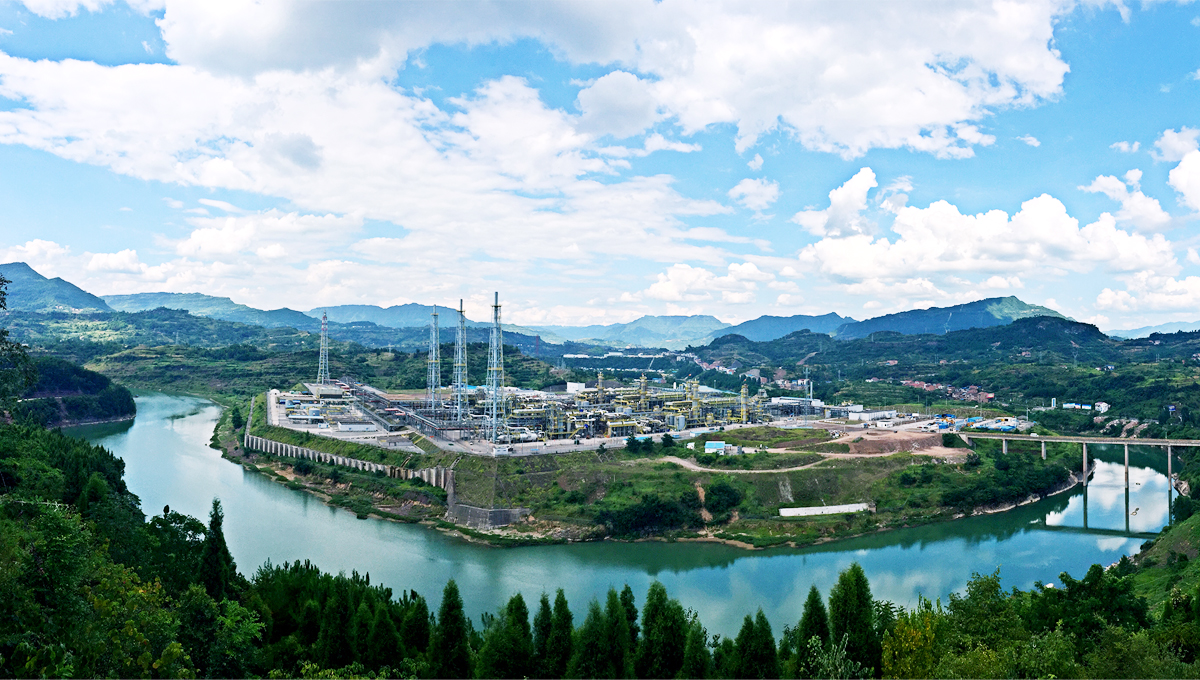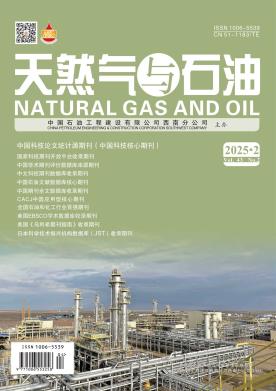油气田场站低碳运行技术研究进展
Research progress on low-carbon operation technology for oil and gas field stations
浏览(2493) 下载(3)
- 引用格式:
-
王超,谭鹏,高鹏程,邓源鹏,蔡从德,任宏洋.油气田场站低碳运行技术研究进展[J].天然气与石油,2025,43(2):35-42.doi:10.3969/j.issn.1006-5539.2025.02.005
WANG Chao, TAN Peng, GAO Pengcheng, DENG Yuanpeng, CAI Congde, REN Hongyang.Research progress on low-carbon operation technology for oil and gas field stations[J].Natural Gas and Oil,2025,43(2):35-42.doi:10.3969/j.issn.1006-5539.2025.02.005
- DOI:
- 10.3969/j.issn.1006-5539.2025.02.005
- 作者:
- 王超1 谭鹏1 高鹏程2 邓源鹏3 蔡从德4 任宏洋3,5
WANG Chao1, TAN Peng1, GAO Pengcheng2, DENG Yuanpeng3, CAI Congde4, REN Hongyang3,5
- 作者单位:
- 1. 中国石油天然气股份有限公司塔里木油田分公司, 新疆 库尔勒 841000; 2. 中油(新疆)石油工程有限公司, 新疆 克拉玛依 834000; 3. 西南石油大学化学化工学院, 四川 成都 610500; 4. 四川长宁天然气开发有限责任公司, 四川 宜宾 644005; 5. 天府永兴实验室, 四川 成都 610213
1. PetroChina Tarim Oilfield Branch, Korla, Xinjiang, 841000, China; 2. PetroChina(Xinjiang) Petroleum Engineering Co., Ltd, Karamay, Xinjiang, 834000, China; 3. School of Chemistry and Chemical Engineering, Southwest Petroleum University, Chengdu, Sichuan, 610500, China; 4. Sichuan Changning Natural Gas Development Co., Ltd., Yibin, Sichuan, 644005, China; 5. Lab of Tianfu Yongxing, Chengdu, Sichuan, 610213, China
- 关键词:
- 油气田;清洁能源;余压余热;微电网;低碳转型
Oil and gas fields; Clean energy; Residual pressure and waste heat; Microgrid; Low-carbon transformation
- 摘要:
“双碳”目标下,油气田场站低碳运行是当前石油企业绿色发展的研究热点之一。综合分析油气田场站运行能耗特点,表明场站运行能耗波动较小,能源需求结构较简单,能源需求主要是电能和热能。同时,结合低碳技术工业化应用情况以及新兴低碳技术的发展趋势,提出了当前油气田站场低碳运行的关键在于优化能源结构。基于不同油气田新能源资源禀赋的特点,充分利用太阳能、风能等可再生能源,以及余热、余压等能源,开发氢能和零碳甲醇内燃机等新型低碳技术,利用大数据、人工智能等信息技术,构建油气田能源智慧管理系统,有效利用区域的新能源优势。研究成果可为油气田场站低碳运营发展提供技术支持。
In the context of the China's “dual carbon” goals(carbon peak and carbon neutrality), the low-carbon operation of oil and gas field stations has become one of the current research hotspots for the green development of oil companies. An analysis of the energy consumption characteristics during the operation of oil and gas field stations indicates that the fluctuations in energy consumption are relatively low, and the energy demand structure is relatively simple, primarily consisting of electricity and heat resources. Integrating the current promotion for industrial application of low-carbon technologies and the emerging trends in low-carbon technologies, it is suggested that the key to achieving low-carbon operation in oil and gas field stations lies in optimizing the energy structure. Taking into account the unique characteristics of new energy resources in different oil and gas fields, it is important to fully utilize renewable energy such as solar energy, wind energy, as well as recovery of waste heat and residual pressure as supplementary energy sources. Additionally, the development of new low-carbon technologies, such as hydrogen energy and zero-carbon methanol internal combustion engines should continue. At the same time, the integration of information technologies like big data and artificial intelligence is crucial for building an intelligent energy management system for oil and gas fields. This system could effectively utilize the new energy advantages of the region. The research findings can provide technical support for the low-carbon development of oil and gas field operation.



